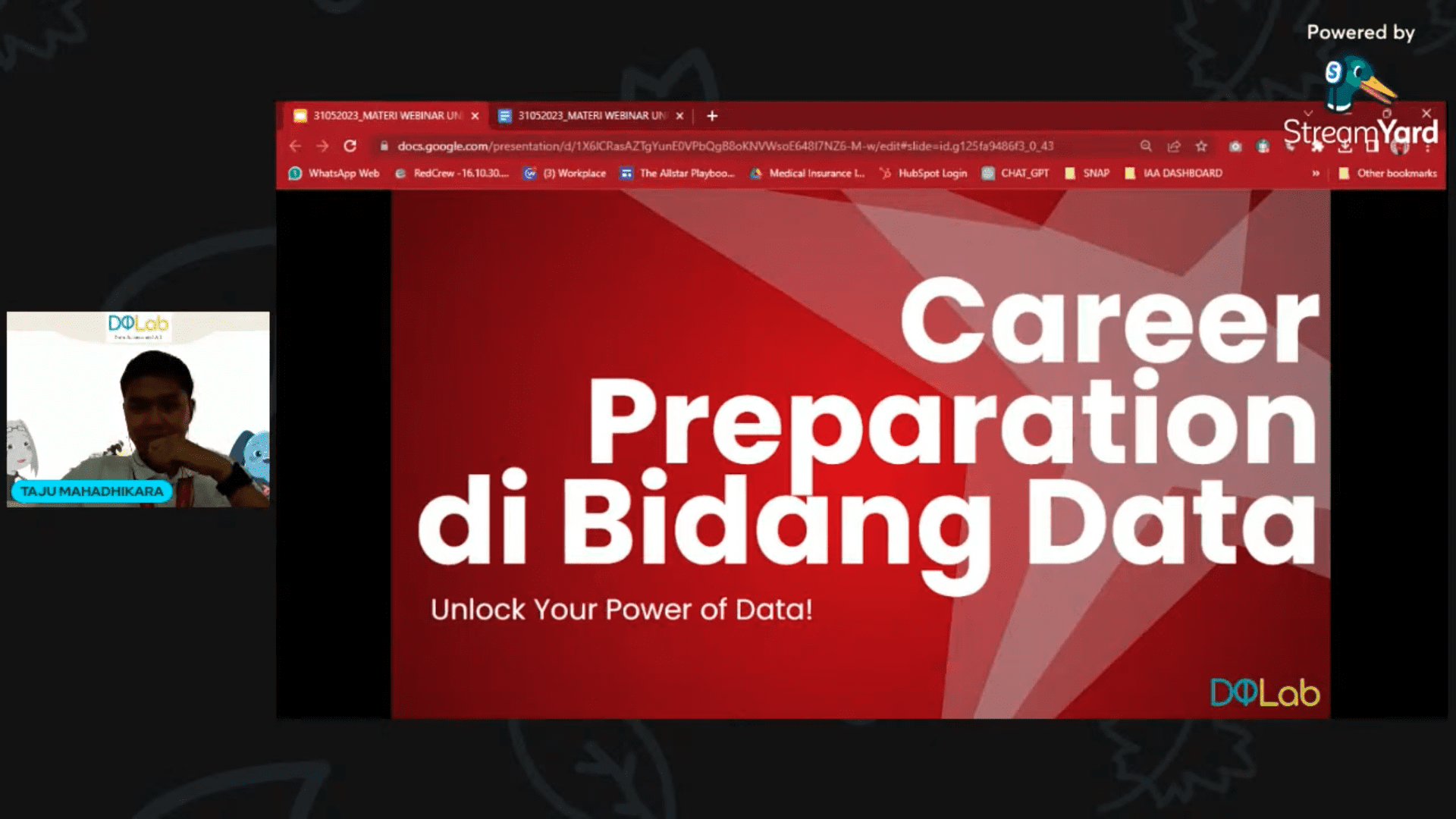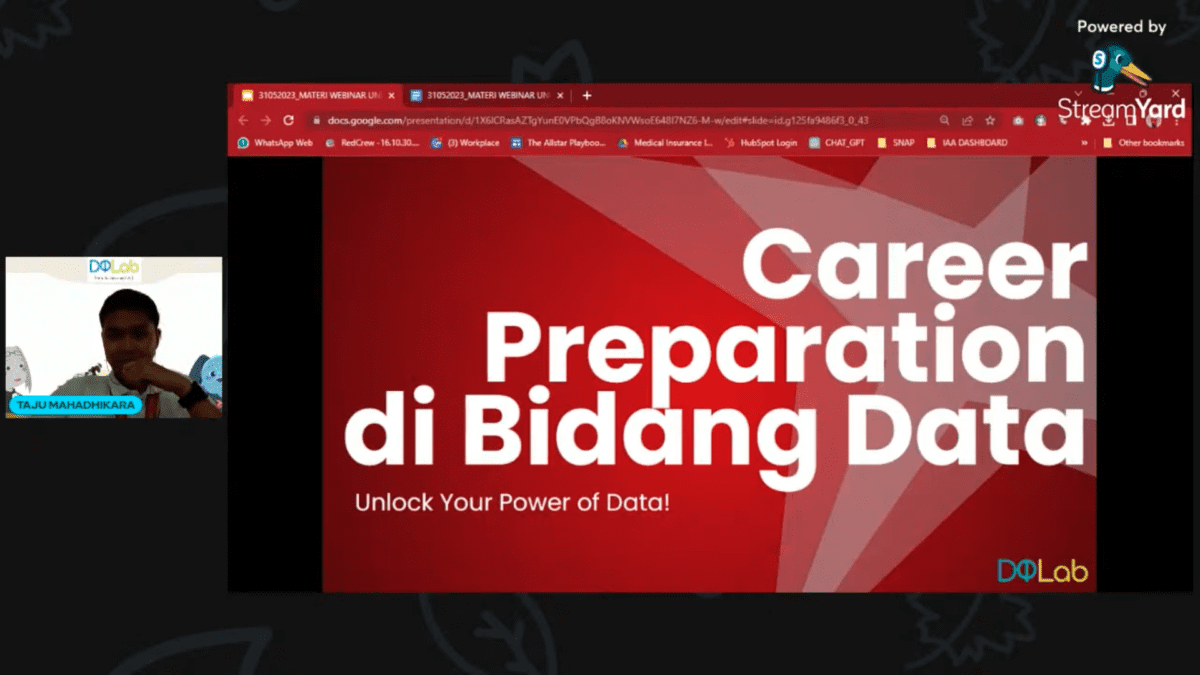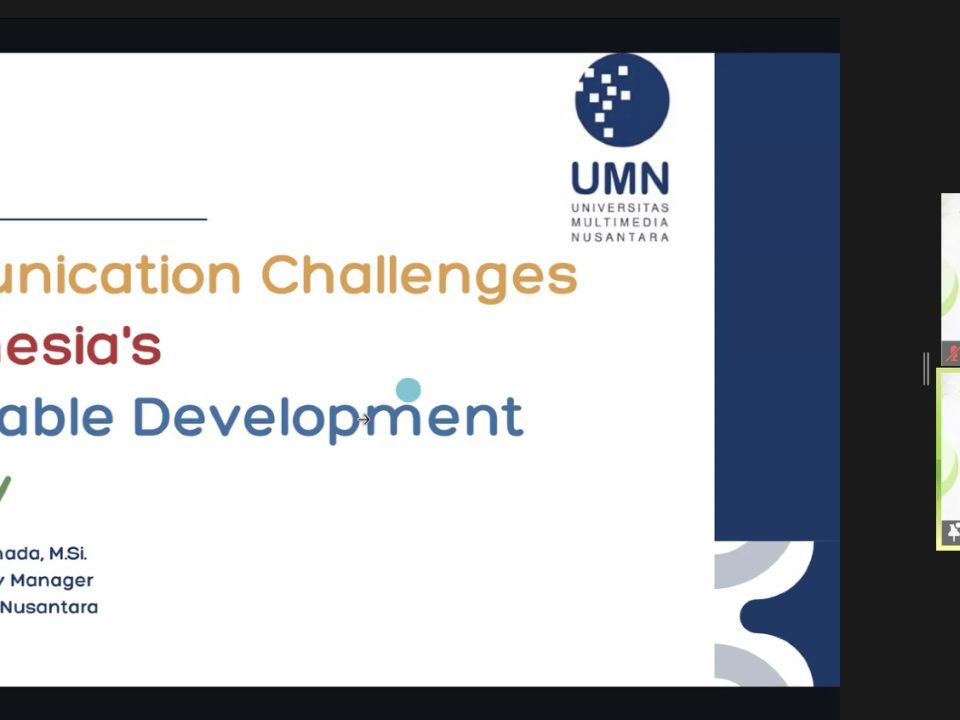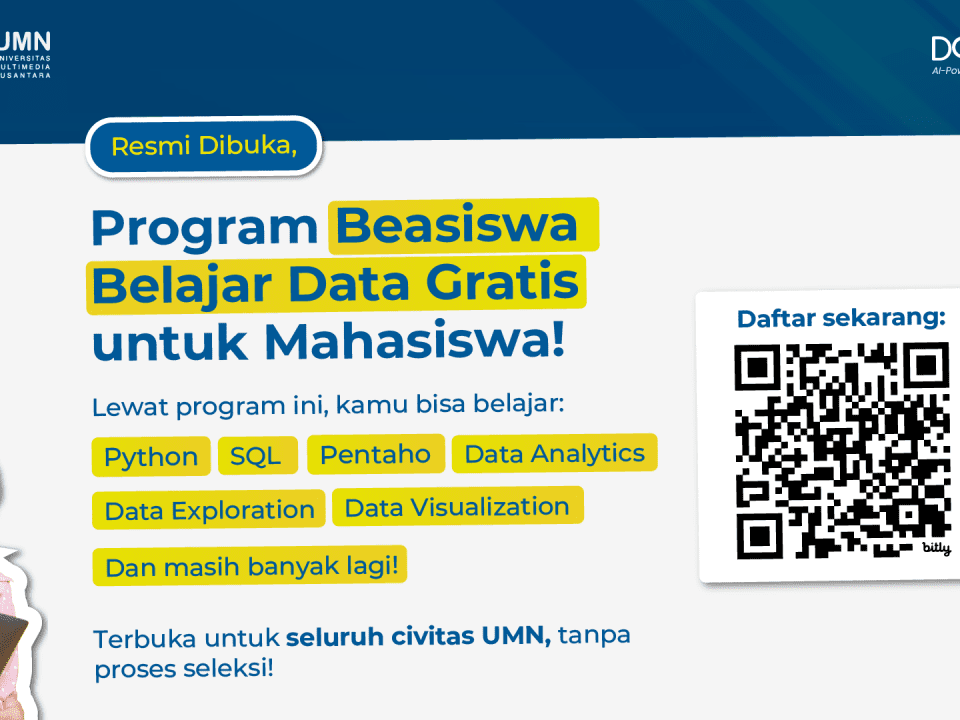
The US State Department Invited a UMN Journalism Lecturer to Learn About Big Data and Digital Innovation
June 9, 2023
3 UMN Hospitality Students Win at The Chef Expo 2023 Event
June 9, 2023
TANGERANG – How to become a professional data practitioner in today’s digital age has often been a question for fellow students. In fact, even NON-IT students can now have careers as data practitioners, such as data scientists, data analysts, data engineers, business analysts, and other industry professionals. This is also proportional to the increasing use of Big Data in companies or startups, making a career in the data world become a hot topic and a profession that shines every year.
Before jumping into the industry as a data practitioner, it’s good to have the knowledge and skills of the tools used by data practitioners. Quoted from DQLab at the Webinar Event, which invited Taju Mahadhikara as the Business Intelligence Analyst of Airasia Indonesia on June 1, 2023, he gave tips for students ready for a career as data practitioners in the industry.
As students, we tend to be overwhelmed when we hear the phrase “career,” so we will research the desired profession. The initial steps as a form of self-preparation before a career in data are choosing a role, learning tools, and building a portfolio.
“After choosing a role and job description for each data practitioner, learn tools such as Python, SQL, Excel, etc. Then, it is also important to build a portfolio to show our abilities to the company,” Taja said.
Through his explanation, Taja also provided recommendations of theories to learn for students and learning the application of tools. For theories to learn, he mentioned exploring the science of programming algorithms, linear algebra, calculus, statistics, and databases, while for tools, he mentioned Python, SQL, and R.
“Practice makes perfect. We have to practice continuously, we can take courses that exist too, or you can join existing communities as a form of knowledge sharing. Besides that, you can also learn to use IDE (Integrated Development Environment),” Taja said.
Taja revealed that taking courses can help improve skills and get certifications that can be used later when we apply for jobs in the data field. In addition, through courses and joining communities, you can build relationships with new friends and senior data practitioners experienced in the industry.
“The first step you can do are build relationships by joining a community. Then, you can expand and maintain the relationships built,” Taja said.
Furthermore, Taja explained that it is crucial for us to see the practitioner opportunities that exist in the company. “First, we have to find which company is our target. Don’t willy nilly look for whatever companies and work. Secondly, you start applying to the company, either through connections you have, recruiters, or you can go directly to the company by sending your project or portfolio. And finally, run the interview process,” Taja said.
In this webinar, Taja also encouraged participants who are considering a career in the data field to create a data portfolio. There are many mediums to create a data portfolio, either through GitHub or creating a data portfolio at DQLab. DQLab is a Data Science course platform that can help upskill to be ready for a career as a data professional data practitioner in the industry. By registering through https://dqlab.id/live-class as a learning medium, you are one step closer to a successful career as a data practitioner!
By DQLab
English translation by Levina Chrestella Theodora
Kuliah di Jakarta untuk jurusan program studi Informatika| Sistem Informasi | Teknik Komputer | Teknik Elektro | Teknik Fisika | Akuntansi | Manajemen| Komunikasi Strategis | Jurnalistik | Desain Komunikasi Visual | Film dan Animasi | Arsitektur | D3 Perhotelan , di Universitas Multimedia Nusantara. www.umn.ac.id





